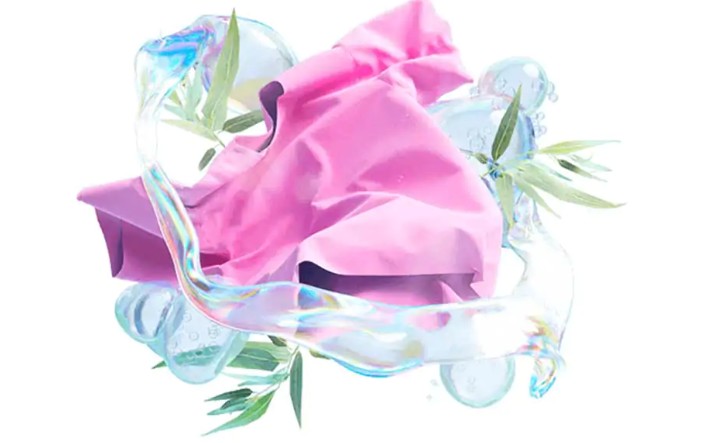The environmental situation stemming from the textile industry is alarming. According to the Ellen MacArthur Foundation, every second, an amount of clothing equivalent to a garbage truck is burned or buried, while textile production accounts for 20% of global drinking water waste and 10% of worldwide carbon emissions—more than all international flights and maritime shipping combined. Additionally, the vast majority of garments made from synthetic fibers take between 200 and 500 years to biodegrade, releasing microplastics that contaminate soil, oceans, and living organisms. This reality has led experts and international organizations to demand an urgent transformation across the entire fashion production chain.
In Chile alone, clothing consumption has increased by 233% over the last 20 years, contributing to the global environmental crisis, as evidenced by clothing graveyards in the Atacama Desert. Many of these garments are non-biodegradable and contain chemicals that prevent their disposal in municipal landfills.
In this critical scenario, solutions from design or recycling are insufficient, opening the alternative of proposing new options from the very heart of the supply chain—raw materials. This is where CMPC and Arauco have found a powerful convergence between the forestry sector and sustainable fashion. Both companies are betting on bio-based fibers that can replace polluting materials like polyester or conventional cotton, creating cleaner, biodegradable, and traceable textiles. With investments in technological innovation and sustainable production, they are taking firm steps toward the global transformation of clothing.
CMPC Bets on Technological Innovation by Investing in the Startup Rubi
The company CMPC recently announced its entry into Silicon Valley's innovation ecosystem through an investment in the U.S. startup Rubi. Founded by twins Neeka and Leila Mashouf in 2021, this company has developed a technology that transforms industrial carbon emissions into textile materials.
Rubi utilizes CO2 as a natural resource to manufacture critical materials at a competitive cost, employing a cell-free enzymatic flow biocatalysis platform. In doing so, it ushers in a new era in industrial processes—so-called symbiotic manufacturing—by replacing intensive production methods with a system that converts residual CO₂ into materials. The process virtually uses no water or land, and its end products are 100% biodegradable. In fact, a pair of jeans made with Rubi textiles not only removes carbon from the atmosphere but also ensures that, at the end of their life cycle, they degrade without leaving waste, returning to the natural carbon cycle.
CMPC's investment, finalized in a $13.5 million funding round, positions the company as a key player in driving clean technologies for fashion. This round also included participation from companies like H&M Group Ventures and Patagonia’s Tin Shed Ventures, highlighting the growing interest of the textile world in these solutions. From CMPC Ventures, its manager Bernardita Araya explained that this initiative complements their portfolio of fiber- and wood-based solutions, aiming for a responsible textile industry aligned with the planet's needs.
ARAUCO: Sustainable Fashion from the Forests of Southern Chile
Since 2020, Arauco has embarked on its own path toward more sustainable fashion through the production of textile pulp at its Valdivia pulp plant. The fiber obtained from eucalyptus is used to make viscose or rayon, a renewable, recyclable, and fully biodegradable textile alternative. This pulp is already exported to major textile manufacturers in countries like China, India, Indonesia, and Thailand.
The environmental benefits of these fibers are evident. According to data from PEFC International and UNECE/FAO, forest-based fabrics consume one-third of the energy and 60 times less water than cotton or synthetic fibers. Additionally, they allow for more efficient dyeing, possess antibacterial properties, and are hypoallergenic. This makes them an attractive option for an industry seeking to reduce its ecological footprint.
This year, Arauco's participation in the international conference "Challenge the Fabric" in Milan solidified its presence in the fashion sector. There, they presented a collection of scarves created in partnership with the Chilean brand 1KO, illustrated by Ignacia Jullian, Sago Estudio, and Bad Sisters, and inspired by protected landscapes. The proposal seeks to connect fashion, art, and environmental conservation while calling on designers to integrate cellulose fibers into their collections. As explained by Arauco’s Forests and Sustainability Manager, Juan Anzieta, the future of the textile industry will be defined by demands for traceability, positive impact on nature, and collaboration with local communities.
Initiatives like those of CMPC and Arauco pave a new path. The integration of sustainable raw materials, circularity in production processes, and the use of carbon-capturing technologies instead of emitting ones mark a hopeful route for one of the planet's most polluting industries. The fashion of the future—cleaner, fairer, and regenerative—could be sown in Chilean forests.
Source: Madera 21







Comments (0)
No comments yet. Be the first to comment!
Leave a comment